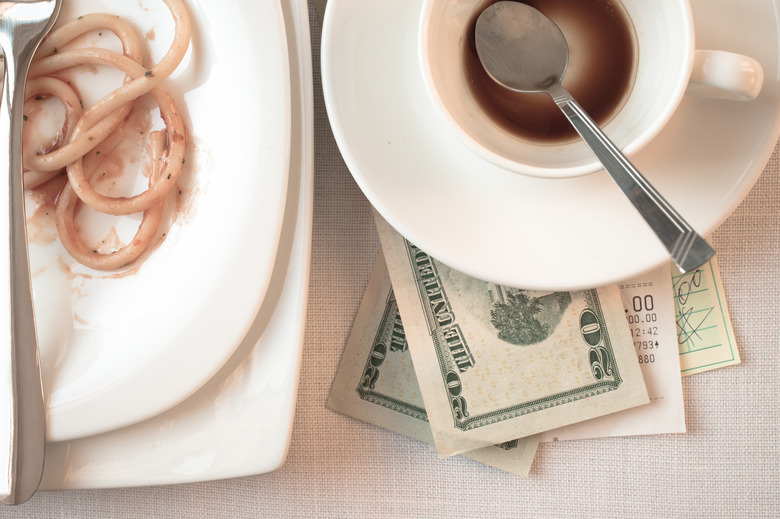New York Times Report Links Tipping To Server Abuse, Harassment
A new report from The New York Times details the widespread abuse and harassment restaurant and bar servers have endured on the job while attempting to make a living wage through tips. The news outlet collected stories from over 60 servers and bartenders, who related countless acts of verbal and sexual harassment by customers — whose behavior the report indicates is enabled by the dynamics of the tipping system.
The Times uncovered how these acts of harassment affect servers of every gender, color, and size, as well as how things like unwanted touching and sexually aggressive language happen no matter how expensive, inexpensive, or how festive a given restaurant may be.
San Diego server Angela Hoover told the outlet that during one of her shifts, a man walked past her and slipped his hand into her shirt, touching her breast. "I just kind of stood there shocked," she said. "I felt something — I was like, 'What the heck was in my bra?' — and it was a dollar."
Many men and women in the restaurant industry feel as though they can't act against the abuse because tips left according to customers' whims are the primary source of their wages. Cocktail server Dana Angelo had a customer reach under her skirt and grab her crotch, she told the paper. She said that she had to stifle the urge to scream. "I don't want to do anything that makes these people leave and not tip me. I'm looking at $200 in tips."
The piece highlights labor rights advocates who call for eliminating the lower minimum wage that most restaurants pay tipped workers; if servers are less dependent on tips, activists argue, they may feel more empowered to push back against aggressive sexual and verbal behavior. There has also been a call to end tipping as it exists and to instead include a gratuity fee. However, the idea of changing the current system is facing pushback from small business owners, servers, and customers.
This is not the first time this week that The New York Times has considered unjust conditions in the restaurant industry. On March 12, a Times op-ed called for New York to join seven other states that have made it illegal for employers to pay tipped workers less than minimum wage, claiming such a move would help to "lift thousands of low-income families out of poverty."
The next time you dine out, either at one of the 101 best restaurants in America or at your neighborhood pub, consider how you're treating your server — and not just in terms of the percentage you choose to tip.
